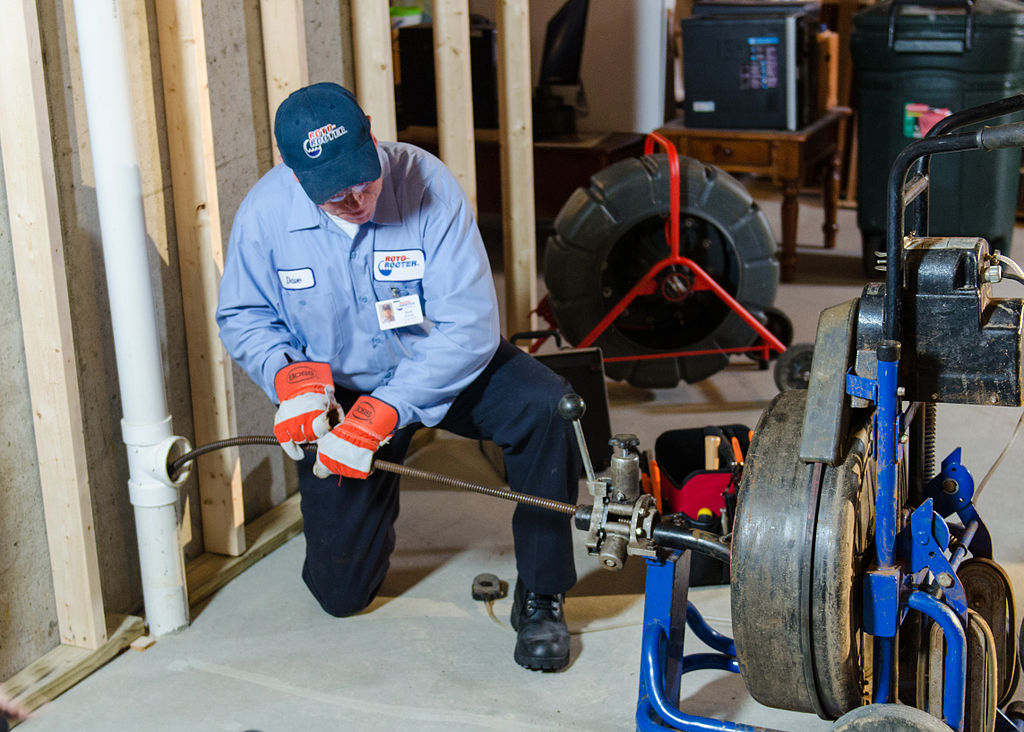The Rewarding World of Plumbing: Exploring Career Opportunities and Growth
Plumbing is a vital trade that plays a crucial role in maintaining the infrastructure of our homes, businesses, and cities. As a plumber, you'll find yourself at the forefront of ensuring clean water supply, proper waste disposal, and efficient heating systems. This article delves into the diverse career opportunities available in the plumbing industry, the skills required to succeed, and the potential for growth and advancement in this essential field.

Plumbers work with a wide array of tools and materials, including pipes, fittings, fixtures, and specialized equipment. They must have a strong understanding of hydraulics, mathematics, and building regulations to effectively carry out their duties. Additionally, plumbers often interact with clients, providing expert advice and explaining complex issues in an easy-to-understand manner.
What Skills and Qualifications Are Needed to Become a Plumber?
Becoming a successful plumber requires a combination of technical skills, physical abilities, and personal qualities. Some of the key skills and qualifications include:
-
Technical knowledge: Understanding of plumbing systems, building codes, and safety regulations.
-
Problem-solving skills: Ability to diagnose issues and develop effective solutions.
-
Physical stamina: Plumbing often involves working in tight spaces and lifting heavy materials.
-
Manual dexterity: Precision and hand-eye coordination are essential for working with tools and small components.
-
Communication skills: Interacting with clients and explaining complex issues clearly.
-
Math skills: Calculating measurements, angles, and pressure ratings.
Most plumbers start their careers through apprenticeship programs, which typically last 4-5 years and combine on-the-job training with classroom instruction. After completing an apprenticeship, plumbers can become licensed journeypersons and eventually master plumbers with additional experience and certifications.
How Does the Job Market Look for Plumbers?
The job outlook for plumbers is generally positive, with steady demand for skilled professionals in this field. According to the U.S. Bureau of Labor Statistics, employment of plumbers, pipefitters, and steamfitters is projected to grow 5% from 2020 to 2030, about as fast as the average for all occupations.
Several factors contribute to the continued demand for plumbers:
-
Aging infrastructure: Many cities and buildings require upgrades to their plumbing systems.
-
New construction: Ongoing residential and commercial development creates jobs for plumbers.
-
Green technology: Increasing focus on water conservation and energy-efficient systems creates opportunities for specialized plumbing work.
-
Retirements: As experienced plumbers retire, new job openings become available for entry-level workers.
What Are the Different Specializations Within Plumbing?
The plumbing industry offers various specializations, allowing professionals to focus on specific areas of expertise. Some common specializations include:
-
Residential plumbing: Installing and maintaining plumbing systems in homes.
-
Commercial plumbing: Working on larger-scale projects in office buildings, hospitals, and other commercial structures.
-
Industrial plumbing: Focusing on complex systems in factories and manufacturing facilities.
-
Gas fitting: Installing and maintaining gas lines and appliances.
-
Fire protection systems: Installing and maintaining sprinkler systems and other fire safety equipment.
-
Green plumbing: Specializing in water conservation and energy-efficient systems.
Specializing in a particular area can lead to higher pay rates and increased job opportunities.
What Is the Earning Potential for Plumbers?
The earning potential for plumbers can vary significantly based on factors such as experience, location, specialization, and whether one works for a company or is self-employed. According to the U.S. Bureau of Labor Statistics, the median annual wage for plumbers, pipefitters, and steamfitters was $56,330 in May 2020.
| Experience Level | Median Annual Salary |
|---|---|
| Entry-level | $33,460 |
| Mid-career | $56,330 |
| Experienced | $98,990 |
Prices, rates, or cost estimates mentioned in this article are based on the latest available information but may change over time. Independent research is advised before making financial decisions.
It’s worth noting that plumbers who run their own businesses or work in specialized fields may earn significantly more than these figures. Additionally, overtime pay and benefits can further increase overall compensation.
How Can Plumbers Advance Their Careers?
Career advancement in plumbing can take several paths:
-
Specialization: Developing expertise in a specific area of plumbing can lead to higher-paying jobs and increased demand for your services.
-
Supervisory roles: With experience, plumbers can move into management positions, overseeing teams of apprentices and journeypersons.
-
Business ownership: Many plumbers choose to start their own plumbing businesses, which can lead to higher earnings and greater flexibility.
-
Education and training: Pursuing additional certifications and staying up-to-date with new technologies can open doors to advanced career opportunities.
-
Union leadership: For those working in unionized environments, there may be opportunities to take on leadership roles within the union.
Continuous learning and adapting to new technologies and industry trends are key to advancing in the plumbing profession.
In conclusion, a career in plumbing offers stability, diverse opportunities, and the potential for growth and advancement. With the ongoing demand for skilled professionals and the essential nature of plumbing services, this field continues to provide rewarding career paths for those willing to invest in the necessary skills and training. Whether you’re just starting out or looking to take your plumbing career to the next level, the industry offers numerous avenues for professional development and success.






